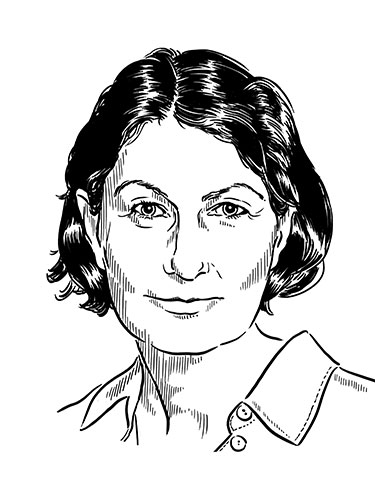Definitions of sex and gender by Andrea Maihofer.
Text: Andrea Maihofer
In today’s society, it is widely accepted that there are more facets to gender than just male and female. How is an individual’s sex defined? Answers from the field of
gender research.
Current gender research is concentrated in two different focal areas: One branch of gender studies centers primarily around the humanities and social sciences, while the other focuses on the natural sciences. These two approaches constantly interact and, in places, even merge.
The first of these two approaches, upon which this essay is based, defines gender largely as a sociocultural phenomenon. Research in this area focuses on the dominant understanding of gender (gender identity, gendered bodies, sexuality) within its respective historical context and the associated gender norms. The research highlights both how they constantly change and how different the social division of labor and gender hierarchy associated with these norms are.
In addition, it reveals significant differences in the social relevance of gender throughout history. In the early modern period, for instance, a person’s status or class affiliation was more important than their gender. Therefore, no single historical, prevailing idea of gender, gender roles or societal or domestic division of labor is inherently natural. Instead, these notions are contingent upon sociocultural factors – they are finite models, not suprahistorical phenomena.
This is not to negate the existence of physical, biological differences between people of different sexes. Nevertheless, it is not the penis itself that is an expression of activity, male potency and superiority, while there is 'nothing there' in women and the female sexual organs are primarily passive or receptive. It is the people who place value on these respective body parts and associate with them different normative conceptions of gender and sexual practice.
The logical consequence is that people assigned male at birth due to their physical characteristics are not, in fact, naturally more energetic, rational, aggressive, politically minded and superior to women, and people assigned female at birth are not intrinsically passive, emotional, peaceful and motherly. These are culturally attributed values that began to take shape and only became generalized in this form in the 18th and 19th centuries with the establishment of bourgeois capitalist society and its binary hierarchical heteropatriarchal gender system as the dominant conception of gender.
The implication was that those assigned as having male or female bodies would be obligated to submit to the normative requirement to develop an intelligible, unambiguous and lifelong male or female gender identity and heterosexual orientation, an aggregation which would be referred to today as cisheterosexual gender identity. To this day, an individual who does not conform to these normative standards faces social discrimination and exclusion. This state of affairs is not natural in any sense – it is social and political, a fact that is also evident in the current intensifying debate about the increasing pluralization of gender and sexual lifestyles.
This means: Gender today – according to the historicity and sociality of gender – must be understood as the factually lived diversity of genders, gendered bodies and sexualities. Achieving social and legal recognition of this reality must be a central to our current efforts to overcome all forms of discrimination.
Andrea Maihofer joined the University of Basel in 2001 as Professor of Gender Studies. Hers was Switzerland’s first professorship devoted solely to the field of gender studies and coincided with the launch of the Center for Gender Studies and the introduction of gender studies as an independent subject. Andrea Maihofer’s research focuses on gender theory and transformation and the persistence of gender and gender roles, among other topics. She received emeritus status in 2020. One of her current fields of research is masculinity and right-wing populism. She is also writing a book about Virginia Woolf.
More articles in the current issue of UNI NOVA.

